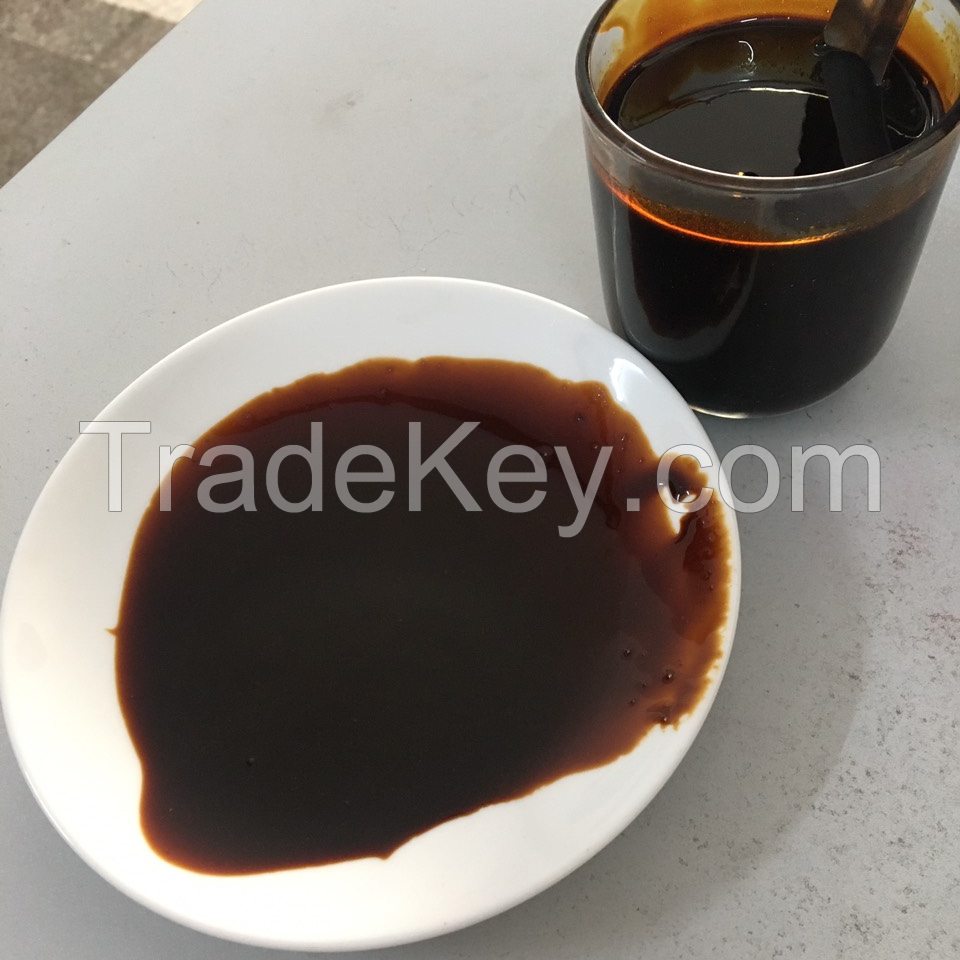





FOB Price
Get Latest Price2.25 ~ 4.5 USD / Kilogram ( Negotiable )
|1000 Kilogram Minimum Order
Country:
Vietnam
Model No:
Tracy Molasses - D1074
FOB Price:
2.25 ~ 4.5 USD / Kilogram ( Negotiable ) Get Latest Price
Place of Origin:
Vietnam
Price for Minimum Order:
2.25 per Kilogram
Minimum Order Quantity:
1000 Kilogram
Packaging Detail:
cusomer's request
Delivery Time:
15 to 20 days
Supplying Ability:
10000 Kilogram per Day
Payment Type:
T/T, L/C, Western Union
Product Group :
Introduction
Molasses sugarcane is a byproduct of the sugar extraction process that boasts rich flavors and a host of health benefits. Molasses is often recognized for its deep, robust taste and versatility in cooking and baking. Derived from sugarcane, a tropical grass known for its high sugar content, molasses has been used in culinary traditions around the world for centuries. This comprehensive guide explores the origins, production methods, nutritional benefits, uses, and considerations for incorporating molasses sugarcane into your diet and lifestyle.
What is Molasses Sugarcane?Molasses is a viscous byproduct obtained from the processing of sugarcane (and sometimes sugar beets) to extract sugar. The term "molasses sugarcane" typically refers to the molasses derived from sugarcane. It is the dark, syrupy liquid that remains after the sugar crystals have been removed during the refinement process.
The Sugarcane PlantSugarcane (Saccharum officinarum) is a tall, perennial grass native to tropical regions, primarily cultivated for its high sugar content. The plant features jointed stems, which are rich in sucrose. After harvesting, the sugarcane stalks are crushed to extract their juice, which is then boiled to produce sugar crystals and molasses.
Production of MolassesThe production of molasses involves several stages:
Harvesting and Crushing: Sugarcane is harvested, typically by cutting the stalks close to the ground. The harvested cane is then crushed in a mill to extract the juice.
Juice Extraction: The juice extracted from the crushed sugarcane is collected and filtered to remove impurities.
Boiling: The filtered juice is boiled to evaporate the water content. This process concentrates the juice and causes the sugar to crystallize. The first boiling produces raw sugar and the first molasses.
Further Boiling: The remaining liquid is boiled again to produce more sugar crystals and additional molasses. Each boiling cycle yields a different grade of molasses, with each subsequent batch becoming darker and more concentrated.
Final Processing: The final molasses, which is dark, thick, and rich in flavor, is separated from the sugar crystals. This is known as "blackstrap molasses," the most concentrated and nutrient-rich form of molasses.
Molasses is not only valued for its distinct taste but also for its nutritional content. It is a source of several essential nutrients and minerals, making it a healthier alternative to refined sugars.
Key NutrientsIron: Molasses is an excellent source of iron, which is crucial for the formation of hemoglobin and overall oxygen transport in the blood. It can help prevent iron deficiency anemia.
Calcium: This mineral is important for maintaining healthy bones and teeth. Molasses provides a modest amount of calcium, contributing to bone health.
Magnesium: Magnesium plays a vital role in numerous bodily functions, including muscle and nerve function, blood sugar regulation, and bone health. Molasses contains significant levels of magnesium.
Potassium: Potassium is essential for maintaining proper electrolyte balance, supporting cardiovascular health, and regulating blood pressure. Molasses provides a good amount of potassium.
Vitamin B6: This vitamin is involved in amino acid metabolism, neurotransmitter synthesis, and the production of red blood cells. Molasses contains small amounts of vitamin B6.
Antioxidants: Molasses contains various antioxidants that help combat oxidative stress and inflammation, contributing to overall health.
Compared to refined white sugar, molasses is a more nutritious option. While refined sugar provides empty calories with no nutritional value, molasses contains a range of essential nutrients and minerals. This makes molasses a more healthful choice for sweetening foods and beverages.
Health Benefits of Molasses SugarcaneMolasses offers several health benefits due to its rich nutrient profile and natural properties. Here are some of the key benefits:
1. Supports Iron LevelsMolasses is particularly beneficial for individuals with iron deficiency or anemia. The high iron content in molasses helps support healthy red blood cell production and prevents iron deficiency-related symptoms such as fatigue, weakness, and pale skin.
2. Promotes Bone HealthThe calcium and magnesium in molasses contribute to strong and healthy bones. Regular consumption of molasses can help prevent bone-related issues such as osteoporosis and support overall skeletal health.
3. Regulates Blood PressureThe potassium content in molasses helps regulate blood pressure by balancing sodium levels in the body. This can contribute to cardiovascular health and reduce the risk of hypertension.
4. Supports Digestive HealthMolasses has natural laxative properties that can aid in relieving constipation. Its high magnesium content helps relax the muscles in the digestive tract, promoting regular bowel movements and overall digestive health.
5. Provides EnergyMolasses is a source of complex carbohydrates, which provide a slow and steady release of energy. This can help sustain energy levels throughout the day and prevent sudden spikes and crashes associated with refined sugars.
6. Antioxidant BenefitsThe antioxidants in molasses help protect the body from oxidative stress and inflammation. These compounds can contribute to overall health and reduce the risk of chronic diseases.
Culinary Uses of Molasses SugarcaneMolasses is a versatile ingredient that can be used in a variety of culinary applications. Its rich flavor and unique properties make it a valuable addition to many recipes.
1. BakingMolasses is commonly used in baking to add depth of flavor and color to baked goods. It is a key ingredient in recipes for gingerbread cookies, molasses bread, and spice cakes. The sweetness and moistness it imparts enhance the texture and taste of these treats.
2. CookingMolasses can be used as a sweetener and flavor enhancer in savory dishes. It is often used in marinades, sauces, and glazes for meats and vegetables. The rich, robust flavor of molasses pairs well with ingredients like soy sauce, garlic, and ginger.
3. BeveragesMolasses can be used to sweeten beverages such as tea, coffee, and smoothies. Its distinctive flavor adds a unique twist to traditional drinks. Molasses is also a key ingredient in some traditional drinks like root beer.
4. Preserves and SpreadsMolasses can be used to make preserves, jams, and spreads. Its natural sweetness and thick consistency make it an ideal base for creating flavorful and nutritious spreads.
5. Sweetener AlternativeMolasses can be used as a natural alternative to refined sugars in recipes. It provides a more complex flavor and additional nutrients compared to white sugar. When substituting molasses for refined sugar, it is important to adjust the recipe to account for the difference in sweetness and liquid content.
Purchasing and Storing Molasses SugarcaneWhen purchasing and storing molasses, consider the following tips to ensure you get a high-quality product and maintain its freshness:
1. Choose High-Quality MolassesSelect molasses from reputable brands or suppliers to ensure that you are getting a genuine and high-quality product. Look for molasses that is labeled as "pure" or "unsulfured" to avoid additives and preservatives.
2. Check the LabelRead the label to verify the ingredients and nutritional information. Avoid molasses with added sugars or artificial flavors. The ingredient list should only include sugarcane molasses.
3. Store ProperlyStore molasses in a cool, dry place away from direct sunlight. Once opened, molasses should be kept in an airtight container to prevent moisture and contaminants from affecting its quality. Proper storage helps maintain the flavor and consistency of the molasses.
4. Monitor for SpoilageAlthough molasses has a long shelf life, it can spoil if not stored properly. Check for any signs of spoilage, such as changes in color, texture, or odor. If the molasses appears moldy or has an off smell, discard it.
Potential Side Effects and ConsiderationsWhile molasses is generally safe for most people when consumed in moderation, there are a few considerations to keep in mind:
1. Allergic ReactionsSome individuals may have allergies to sugarcane or molasses. If you experience symptoms such as itching, rash, or swelling after consuming molasses, discontinue use and consult a healthcare professional.
2. Blood Sugar LevelsDespite being a more nutritious alternative to refined sugars, molasses still contains sugar and can affect blood sugar levels. Individuals with diabetes or those managing blood sugar levels should use molasses in moderation and consult a healthcare provider regarding its suitability for their diet.
3. Caloric ContentMolasses is calorie-dense due to its sugar content. Overconsumption can contribute to weight gain and other health issues. It is important to incorporate molasses into a balanced diet and monitor overall caloric intake.
ConclusionMolasses sugarcane is a valuable byproduct of the sugarcane processing industry, offering both culinary versatility and numerous health benefits. Its rich flavor and nutrient profile make it a healthful alternative to refined sugars, providing essential minerals like iron, calcium, and magnesium. Whether used in baking, cooking, or as a natural sweetener, molasses adds depth and complexity to a wide range of dishes and beverages.
| Country: | Vietnam |
| Model No: | Tracy Molasses - D1074 |
| FOB Price: | 2.25 ~ 4.5 / Kilogram ( Negotiable ) Get Latest Price |
| Place of Origin: | Vietnam |
| Price for Minimum Order: | 2.25 per Kilogram |
| Minimum Order Quantity: | 1000 Kilogram |
| Packaging Detail: | cusomer's request |
| Delivery Time: | 15 to 20 days |
| Supplying Ability: | 10000 Kilogram per Day |
| Payment Type: | T/T, L/C, Western Union |
| Product Group : | Other |




